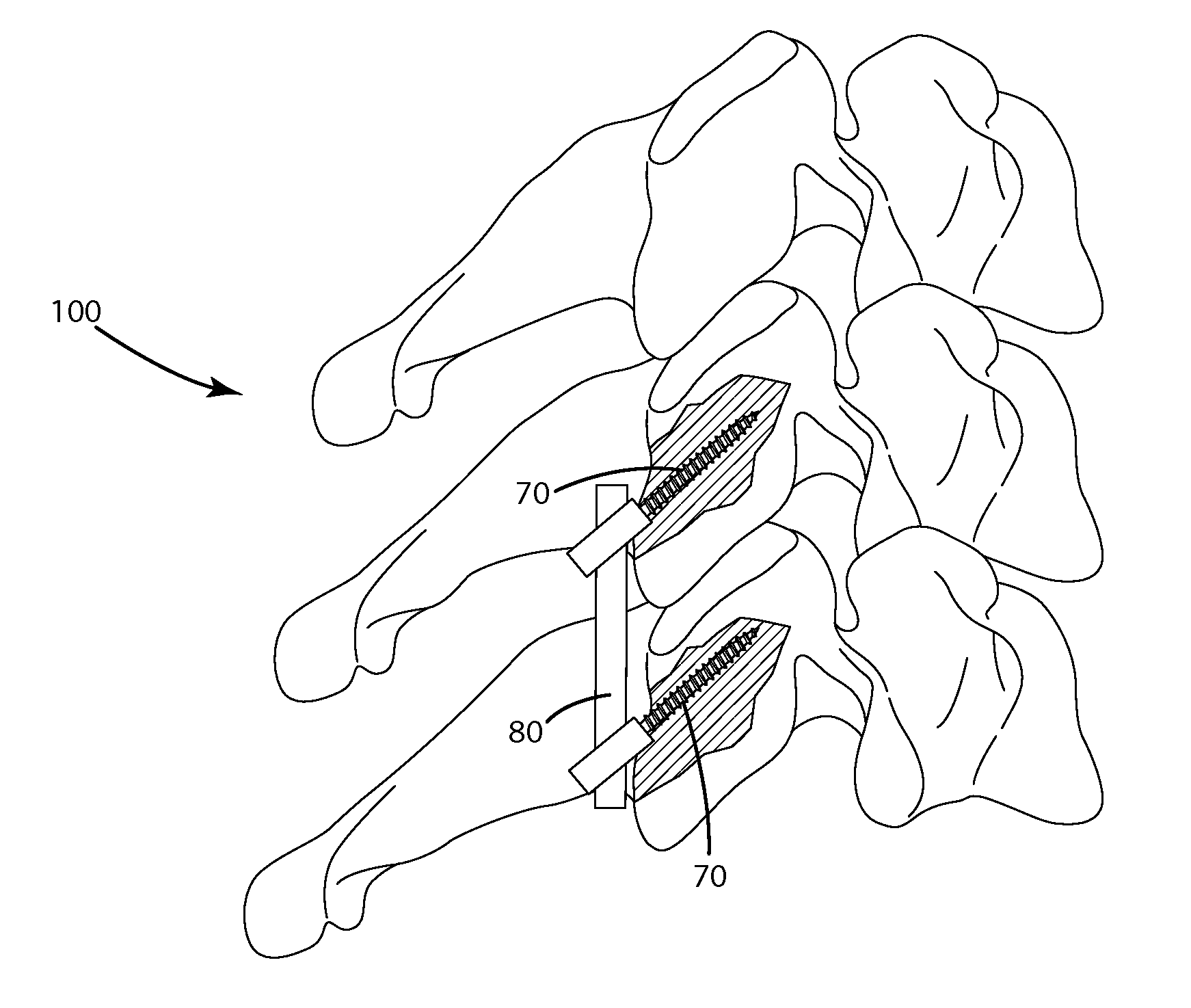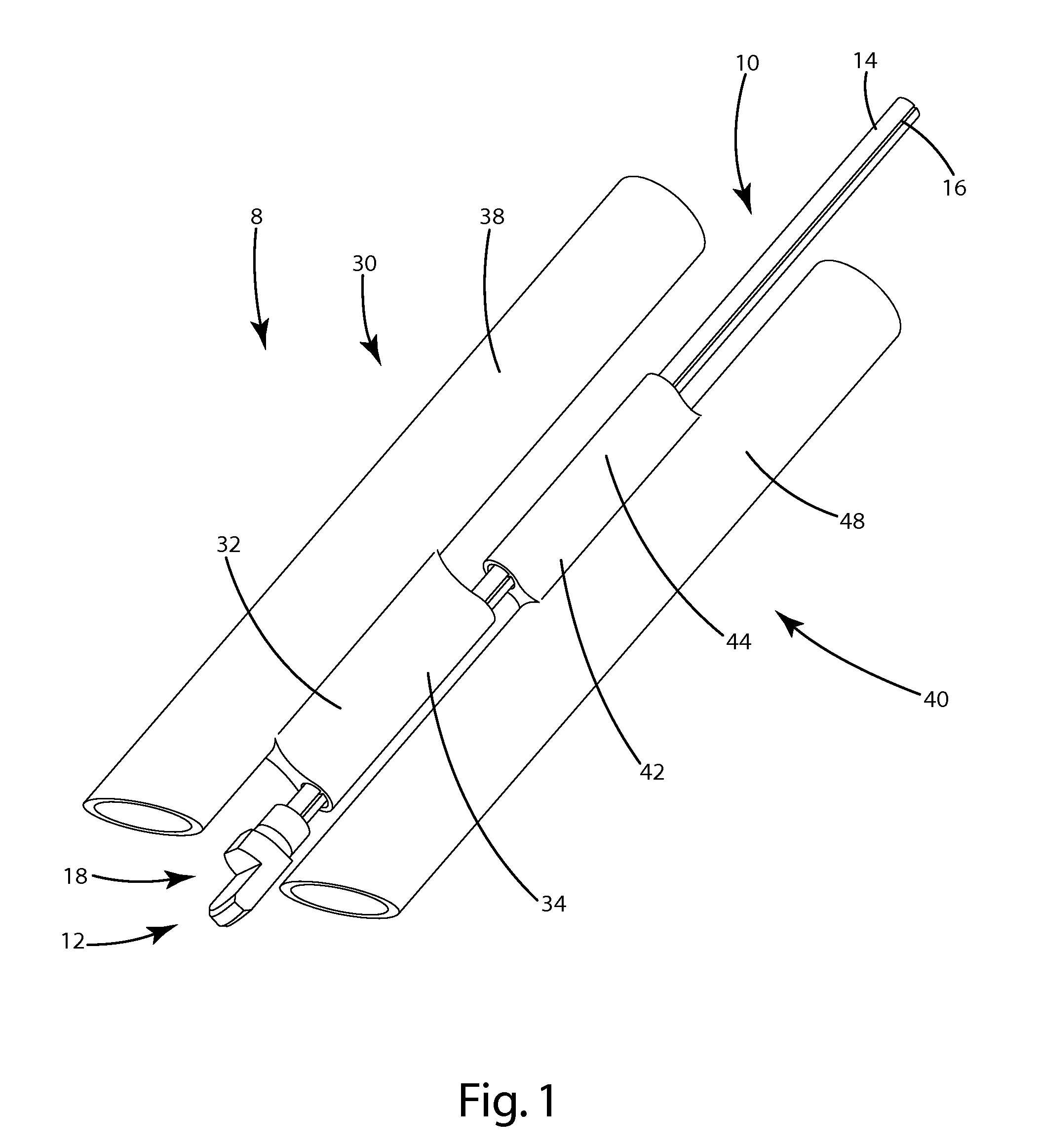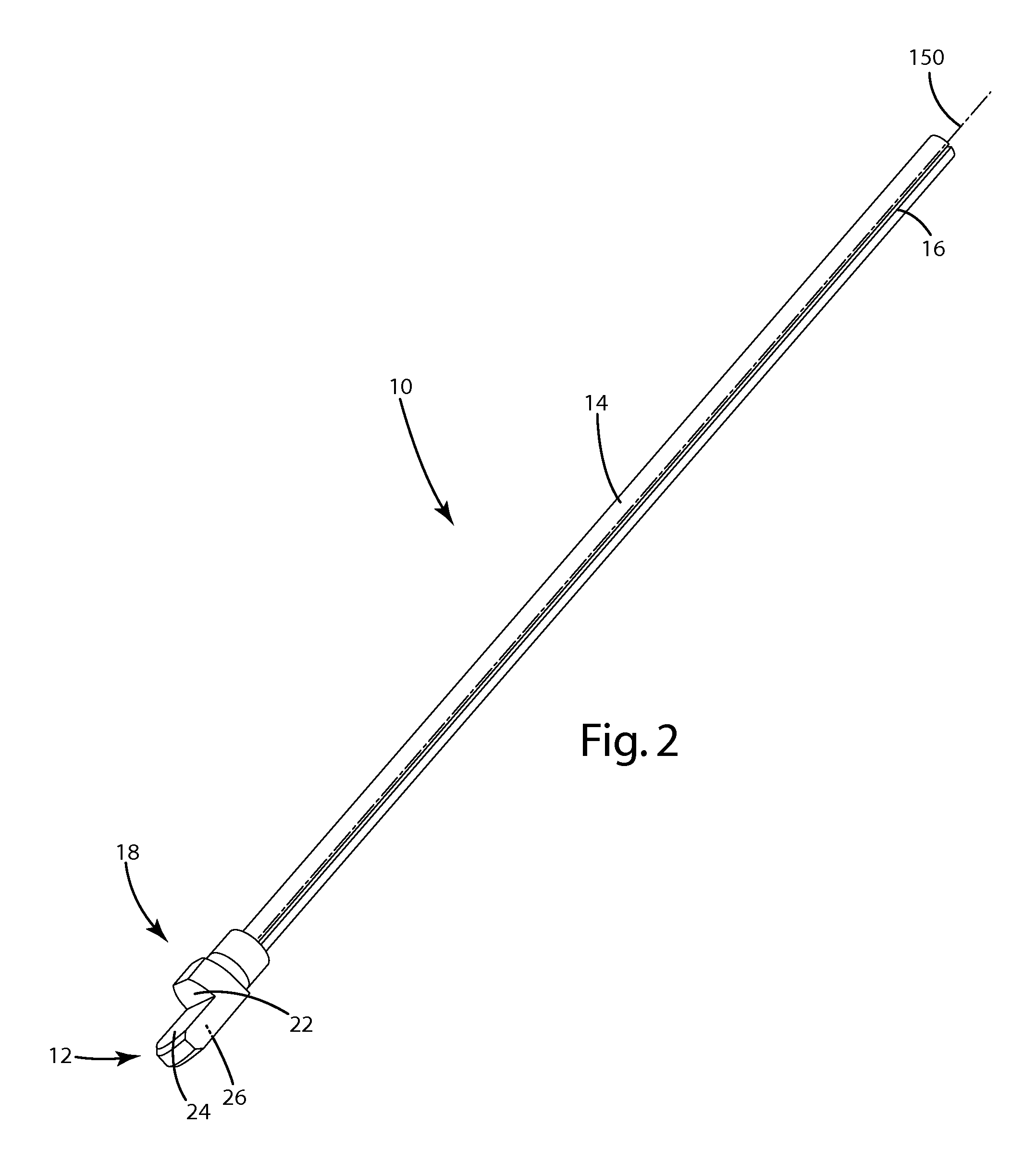Posterior cervical fusion system and techniques
a cervical fusion and posterior cervical technology, applied in the field of posterior cervical fusion surgery, can solve the problem of reducing the likelihood of inaccurate placement of screws in the superior/inferior trajectory, and achieve the effect of reducing the likelihood of inaccurate placement of screws
- Summary
- Abstract
- Description
- Claims
- Application Information
AI Technical Summary
Benefits of technology
Problems solved by technology
Method used
Image
Examples
first embodiment
[0025]Two current embodiments are disclosed in this application. In the first embodiment, shown in FIG. 1, the assembly 8 includes a superior cylindrical extension 30, positioned substantially above the handle 14, and an inferior cylindrical extension 40, positioned substantially below the handle 14. As used in this context, the terms “above” and “below” are in reference to the handle 14 when the end 12 is inserted into the facet joint 50 between the first vertebra 52 and the second vertebra 54 and the patient is upright. In other words, “above” indicates a direction from the handle generally upward toward a patient's head, but away from the patient's body and “below” indicates a direction from the handle generally downward away from a patient's head but towards the patient's body.
[0026]As shown in FIG. 1, the superior cylindrical extension 30 and inferior cylindrical extension 40 are slidably coupled to the facet sled handle 14. The cylindrical extensions 30, 40 include elongated r...
second embodiment
[0028]In the second embodiment, shown in FIGS. 13-14, the surgical instruments slidably engage the facet handle 14. In this embodiment, the assembly 8 may include at least one screw tower or extension 72, which is adapted to support a screw 70 for insertion into the patient's spine 100. Extending from the screw tower 72 is at least one guide member 32″, 42″, which engages and slides along the handle 14. The insertion of the facet sled 10 into the facet joint 50 allows the handle 14 of the facet sled to establish the proper trajectory along which the screw towers 72 and other surgical instruments can travel to properly insert the screws 70 into the patient's spine 100.
I. Structure
[0029]The facet sled 10 may be formed in any shape and size suitable to allow the sled 10 to be inserted into the facet joint 50 of the patient. As shown in FIG. 2, the end 12 of the facet sled is generally flat and is sized to slide between the vertebrae 52, 54 of the patient. The end 12 may optionally be t...
PUM
 Login to View More
Login to View More Abstract
Description
Claims
Application Information
 Login to View More
Login to View More - R&D
- Intellectual Property
- Life Sciences
- Materials
- Tech Scout
- Unparalleled Data Quality
- Higher Quality Content
- 60% Fewer Hallucinations
Browse by: Latest US Patents, China's latest patents, Technical Efficacy Thesaurus, Application Domain, Technology Topic, Popular Technical Reports.
© 2025 PatSnap. All rights reserved.Legal|Privacy policy|Modern Slavery Act Transparency Statement|Sitemap|About US| Contact US: help@patsnap.com



